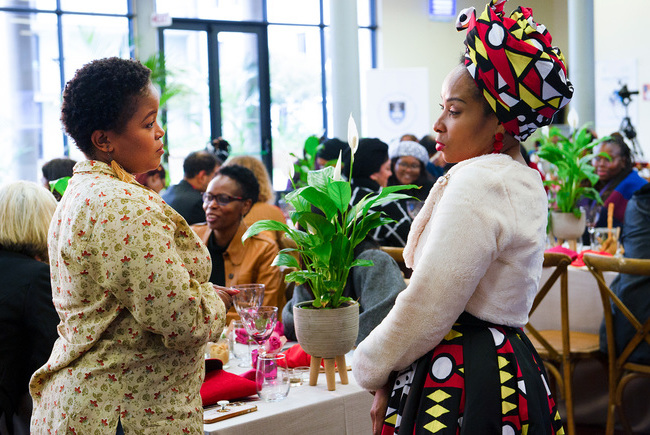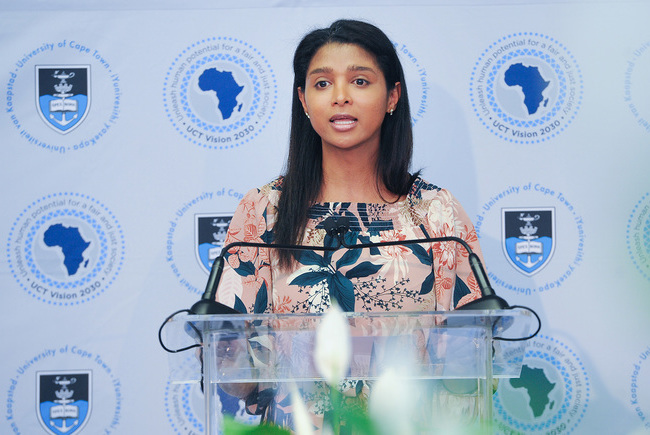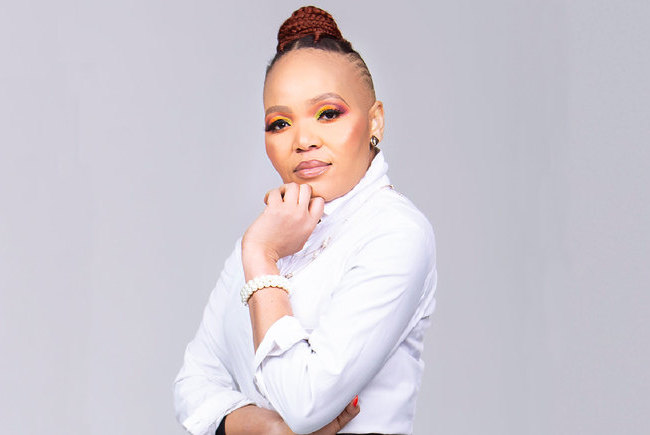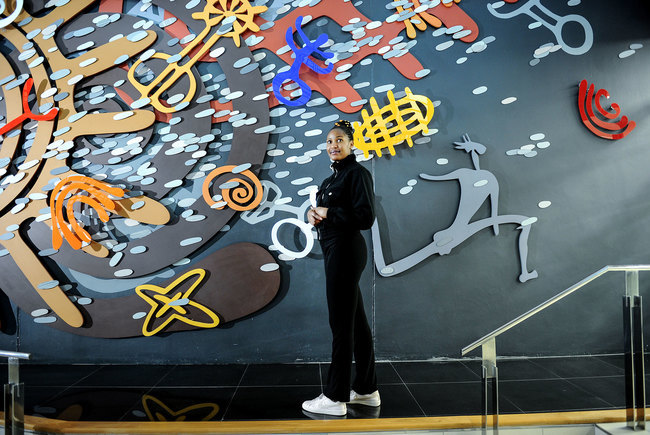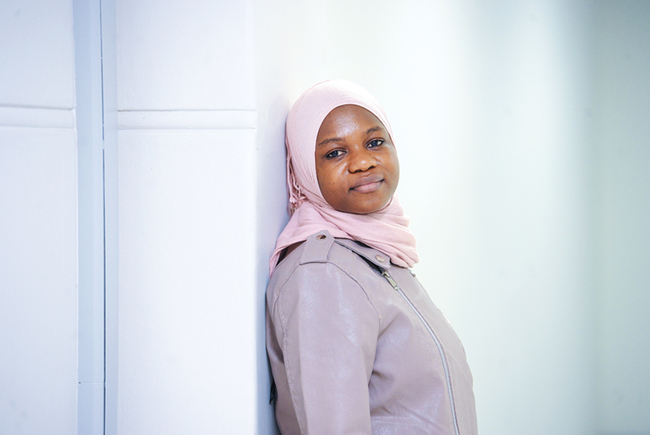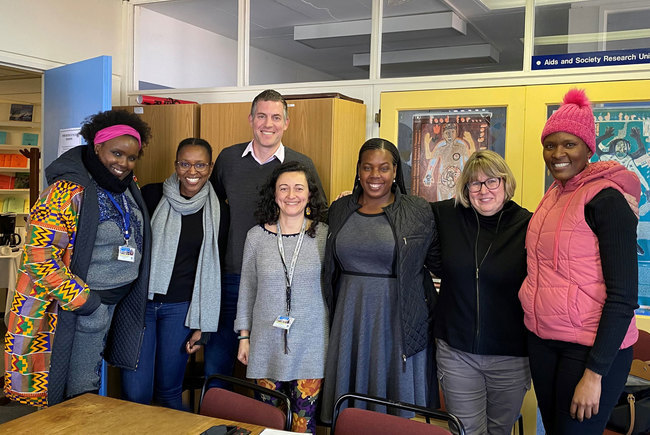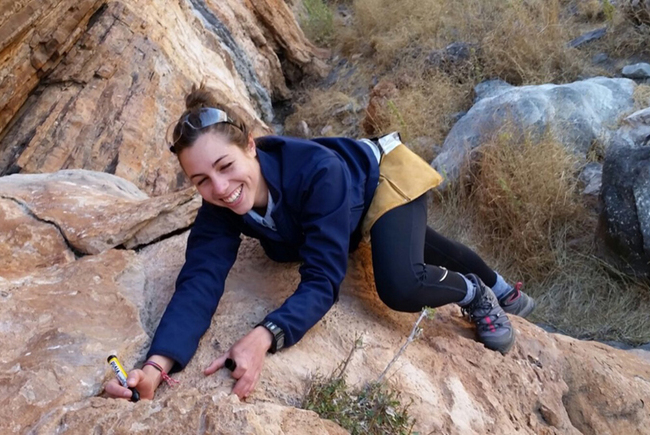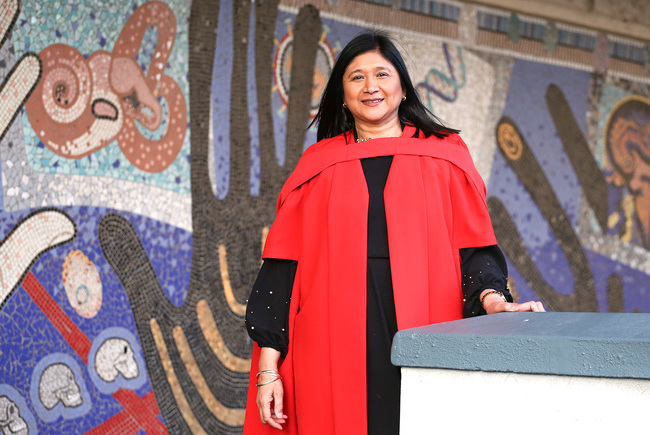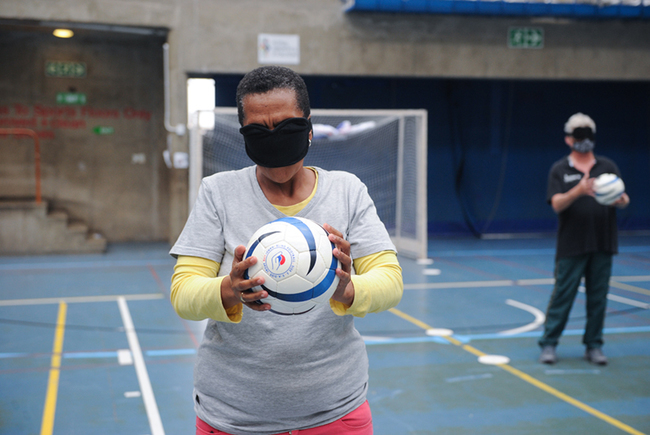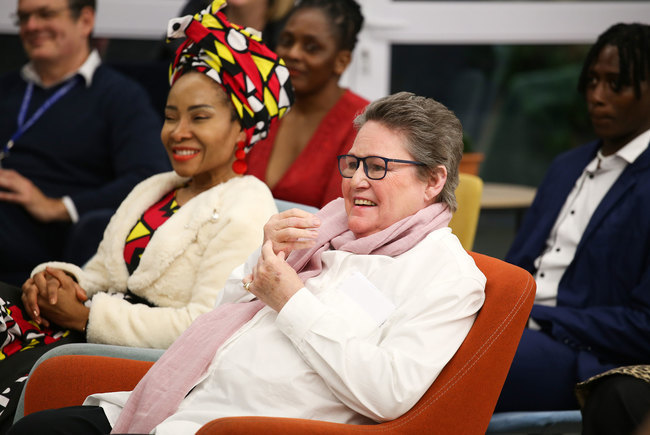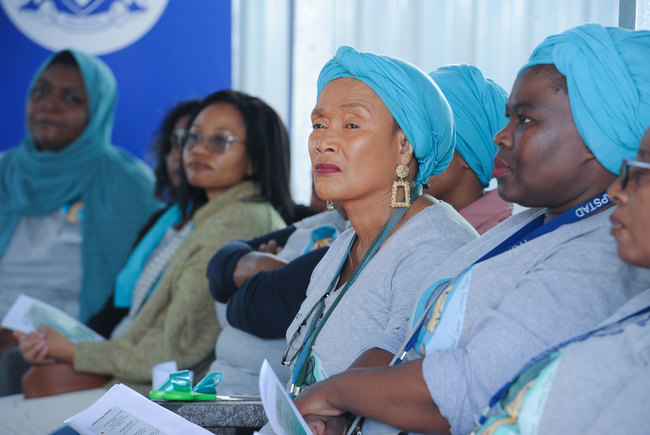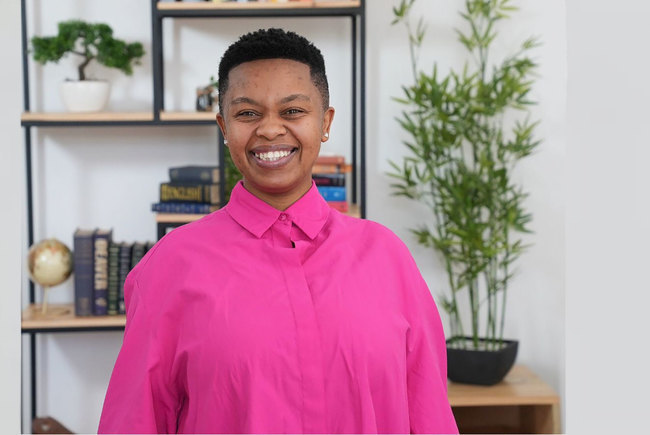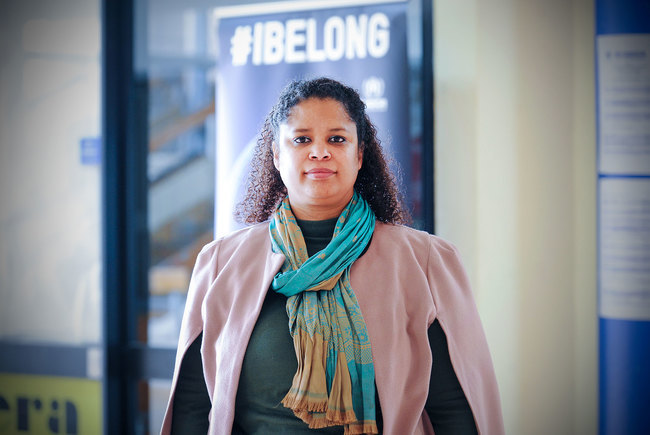Media reports on crimes against children focus on emotion rather than facts – study
01 August 2022 | Story Aamirah Sonday. Read time 8 min.
Acknowledging that the advent of mass media has been one of the most significant developments in shaping the world as we know it today, recent University of Cape Town (UCT) PhD graduate Dr Sisanda Nkoala wanted to understand how that shaping occurs and what it persuades us of.
For the mother of three – two three-year-olds and a one-year-old – her PhD journey was a juggling act between her personal, professional and academic life. But this did not stop Nkoala – and because of her motivation and the support of those around her, she was able to finish her studies in record time, publish 12 peer-reviewed journal articles and book chapters, and present at various local and international conferences.
“I have had an incredible journey. When I started my studies as a media studies student in 2009, I had no ambitions to go beyond honours, let alone do a PhD. I was working as a journalist at the time, and my goal was to graduate and focus on growing in my profession,” she said. “In honours I took a course called Public Argumentation, convened by Professor Philipe Salazar, and had the privilege of having my mini-honours thesis supervised by him. Through this interaction I developed a keen interest in rhetoric and even managed to publish my first journal article.”
Media shapes perspectives
In democracies around the world, the courts view news media as an essential component in how matters of law are communicated to the public. The news media fosters the idea of open justice by making it possible for the public to develop reliable perceptions through direct observation of judicial behaviour and the processes and outcome of a case. The idea is that in providing information, the media then creates awareness and encourages public scrutiny, and this, in turn, fosters public confidence in these institutions, which are then perceived as open and accountable to the public.
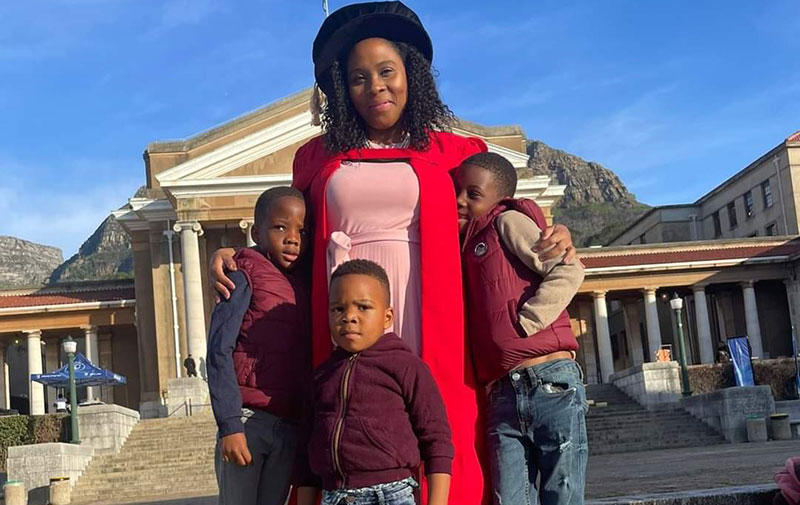
“Scholars who have looked at the factors that shape opinions on the criminal justice system argue that most people’s views are not based on having had a personal encounter with the system. Instead, the perspectives are informed primarily by what they have seen, read and heard in secondary sources, such as the mass news media. The point of departure in this study is that in these news reports, one can observe how verbal and visual symbols of popular culture have been used to shape attitudes and beliefs around crime and justice in South Africa,” shared Nkoala.
For open justice to find expression in the media-in-law communication model, the emphasis needs to be on news reports that allow the public to observe the evidence and deliberations directly, as opposed to news reports that primarily assign meaning to these processes and outcomes for them.
Reporting on crimes against children
For her study, Nkoala evaluated the television news reporting from English television news reports that were broadcast by the South African Broadcasting Corporation and e.TV over 50 days between 15 September and 20 October 2019, based on sentencing proceedings in a criminal matter where the accused was found guilty of a violent crime against at least one child. The focus on violent crimes against children was informed by the fact that in that particular year, these types of crimes, under the broad umbrella of violent crimes against women and children, were very topical in South Africa, and were the subject of several discussions and debates across various media platforms. The focus on the sentencing procedures, as opposed to other aspects of the court process, such as the judgements, was driven by research that has found that because of the distorted ways in which media communicates about sentencing procedures, the public has misconceptions around how these work and what they mean.
Nkoala found that the inclination in the reports is towards evaluative language that draws attention to the emotive aspects of sentencing proceedings in cases involving violence against children. This undermines the educative role envisaged through the principle of open justice.
“The danger in not centring news reports on the pronouncements of the judicial officer is that the other elements do not provide the educational perspective on what the sentences mean.”
“While the crimes are often referred to using the correct legal terminology, the fact that the reports also focus on the reasons advanced by the accused as to why he or she committed the crime also makes this aspect of the reporting appear more evaluative than factual. With the victims being children, the use of their photos at instances when the reports refer to the gruesome nature of the crime committed makes this emotionally provocative. The perspectives from the community further add to the evaluative tone of these reports as the views featured often reference calls for sentences that will serve as punishment and a deterrent. However, there is no indication that these calls are based on an understanding of what informs the legal outcome,” she said.
“Finally, because of the exclusion of explanations from the judicial officers on how the sentence was arrived at, viewers are left to draw their conclusions based on the most salient terms and visuals used, which in this case are based on the emotional appeal of the accused, the provocative references to the victims and the crime, and the sentiments expressed by the public on what these sentences mean.
“The danger in not centring news reports on the pronouncements of the judicial officer is that the other elements do not provide the educational perspective on what the sentences mean.”
Support is key
Having completed her doctoral thesis, Nkoala believes more thought needs to go into support initiatives that consider the diverse backgrounds and experiences of PhD candidates. “My greatest challenges have been trying to access some opportunities as a mother of three young children. In how some initiatives are conceptualised, such as workshops, conferences, writing retreats … the perspective seems to be that PhD students are young people who don’t have children and can thus be away for long periods of time. For someone like me, who has young children, a writing retreat that is a week long is difficult if I can’t bring my children with – at my own cost. As such, there are many things I would have liked to do but couldn’t because I wasn’t allowed to do them and show up as my full self – a mother who is doing a PhD,” she said.
“My PhD journey has been characterised by hard work, yes. But more than anything it has been characterised by incredible support. From my family and friends to my supervisor, Professor Salazar, and Professor Jaco Barnard-Naudé, who supervised me during the proposal stage, to my colleagues at the Cape Peninsula University of Technology.”
 This work is licensed under a Creative Commons Attribution-NoDerivatives 4.0 International License.
This work is licensed under a Creative Commons Attribution-NoDerivatives 4.0 International License.
Please view the republishing articles page for more information.
Women’s Month at UCT
UCT’s Women’s Day event
After two years of virtual events, this year we were able to celebrate Women’s Month in person again on 10 August 2022 at a luncheon hosted by University of Cape Town (UCT) Vice-Chancellor Professor Mamokgethi Phakeng. The event was in honour of the recipients of UCT’s For Womxn By Womxn research grants as well as other phenomenal womxn across the university. Gender activist Liberty Matthyse, who is the executive director of Gender DynamiX, delivered a keynote address themed “Yes, trans women are women”.
UCT women in the news
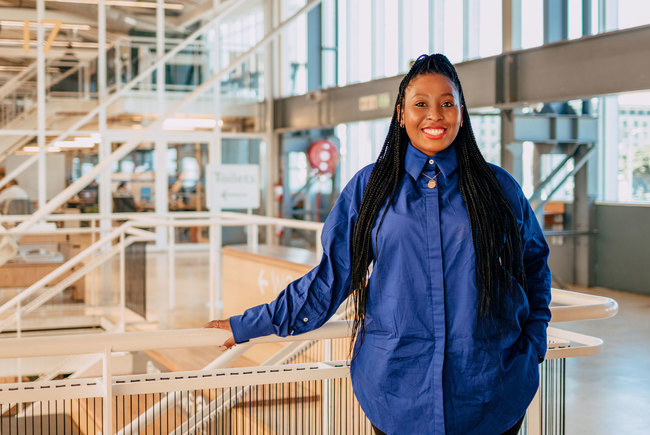
As part of her PhD research, Pretty Mubaiwa wanted to understand the intricacies of African customary marriages and why they expose women to violent and discriminatory practices and experiences.
15 Aug 2022 - 6 min read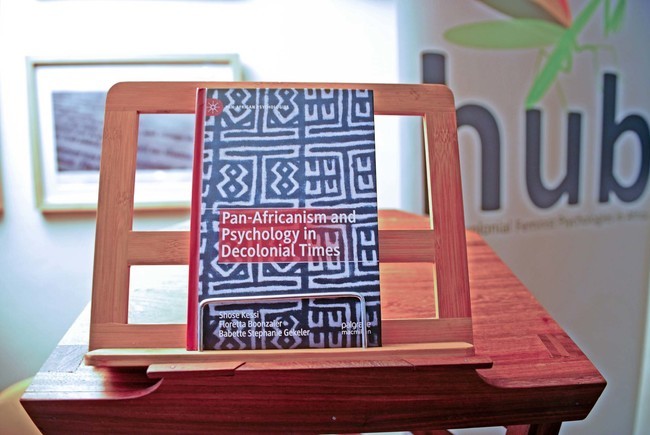
The Hub for Decolonial Feminist Psychologies in Africa launched a book, Pan-Africanism and Psychology in Decolonial Times, by Shose Kessi, Floretta Boonzaier and Babette Stephanie Gekeler, on 4 August at the Department of Psychology on the University of Cape Town’s (UCT) upper campus.
08 Aug 2022







